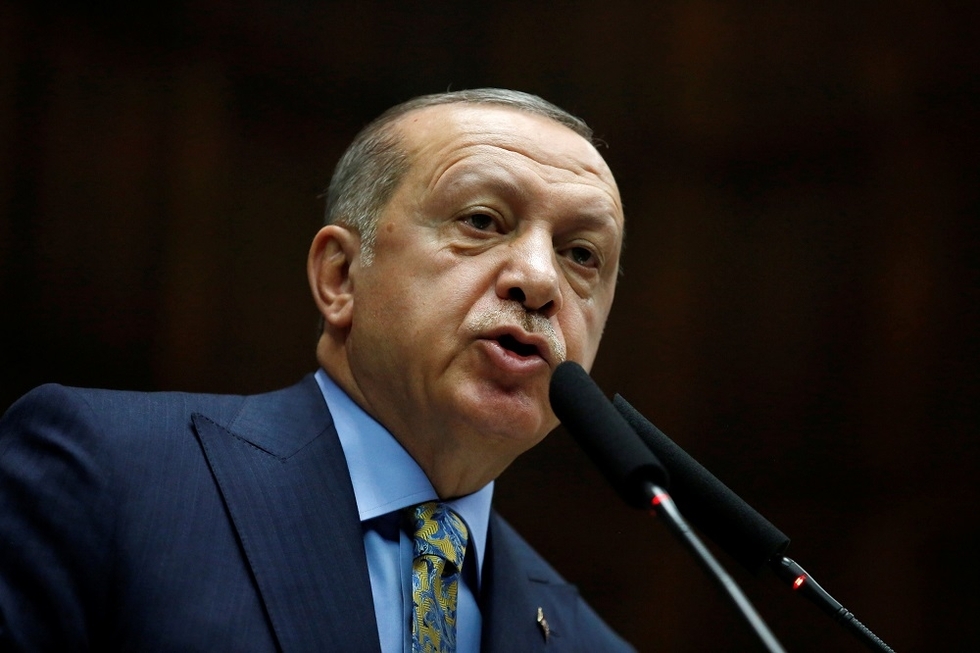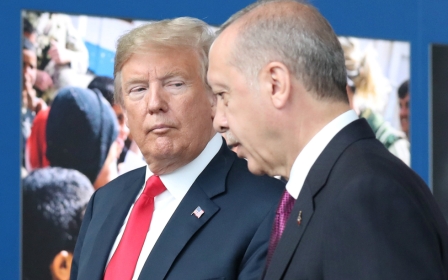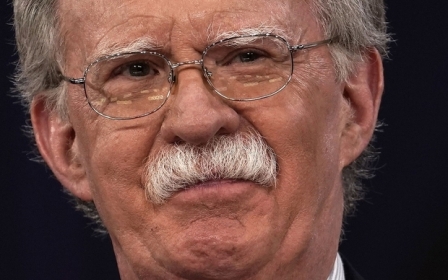Turkey 'only country' that can bring peace to Syria, Erdogan says in NYT

Turkish President Recep Tayyip Erdogan has backed Donald Trump's decision to pull US troops out of Syria, claiming Turkey is the only state in the world powerful enough to bring peace to the war-torn country.
In a wide-reaching opinion piece published in the New York Times on Monday, Erdogan said his American counterpart "made the right call" by announcing the withdrawal of about 2,000 US troops from Syria last month.
The contentious decision, however, "must be planned carefully and performed in cooperation with the right partners to protect the interests of the United States, the international community and the Syrian people", Erdogan wrote.
"Turkey, which has NATO’s second largest standing army, is the only country with the power and commitment to perform that task."
Erdogan's comments come amid ongoing uncertainty surrounding the timeframe for the pullout of US forces, as well as seemingly contradictory statements from members of the Trump administration over how the withdrawal will be carried out.
On Monday, Trump said the US "will be leaving [Syria] at a proper pace", while continuing to fight the Islamic State (IS) group "and doing all else that is prudent and necessary!"
A day earlier, the US president's national security adviser, John Bolton, said the US expects a commitment from Turkey not to attack Washington's Kurdish allies in Syria, who have been credited with leading the fight against IS in the country.
Bolton arrived in Ankara on Monday as part of a US delegation aiming to discuss the details of the US withdrawal from Syria with Turkish officials, among other issues.
'Stabilisation force'
For his part, Erdogan has pledged to defeat IS, as well as "other terrorist groups in Syria".
"I say this again: There will be no victory for the terrorists. Turkey will continue to do what it must to ensure its own safety and the well-being of the international community," he wrote in the Times.
In the piece, Erdogan proposed establishing a "stabilisation force" made up of fighters from all of Syria's diverse communities.
"Only a diverse body can serve all Syrian citizens and bring law and order to various parts of the country. In this sense, I would like to point out that we have no argument with the Syrian Kurds," he wrote.
While reiterating that Turkey views the People's Protection Units (YPG) Kurdish militia as a terrorist group, Erdogan said he understands that "many young Syrians had no choice but to join" the group during wartime conditions.
The YPG dominates the US-backed Syrian Democratic Forces (SDF), which has been a key US ally in the fight against IS.
Washington's relationship with Kurdish fighters in Syria has been a major source of tension with Ankara, which views the YPG as an offshoot of the outlawed Kurdistan Workers' Party (PKK), which is blacklisted by Ankara as well as Washington.
The Turkish government has been engaged in a decades-long war with the PKK, which is considered a terrorist group by both Turkey and the US.
Erdogan also said Turkey has plans for elected councils to eventually govern Syrian territories previously under YPG or IS control.
"Individuals with no links to terrorist groups will be eligible to represent their communities in local governments," he wrote in the US newspaper.
"Local councils in predominantly Kurdish parts of northern Syria will largely consist of the Kurdish community’s representatives whilst ensuring that all other groups enjoy fair political representation. Turkish officials with relevant experience will advise them on municipal affairs, education, health care and emergency services," Erdogan said.
Kurdish leaders in Syria did not immediately comment on Erdogan's article on Monday.
Erdogan did not outline whether he would seek authorisation from the UN Security Council for his Syria plan.
Despite warmer ties between Turkey and Russia, which backs the government of President Bashar al-Assad, Damascus rejected Turkish military presence in Syrian territories and called it a violation of the country's sovereignty.
New MEE newsletter: Jerusalem Dispatch
Sign up to get the latest insights and analysis on Israel-Palestine, alongside Turkey Unpacked and other MEE newsletters
Middle East Eye delivers independent and unrivalled coverage and analysis of the Middle East, North Africa and beyond. To learn more about republishing this content and the associated fees, please fill out this form. More about MEE can be found here.




